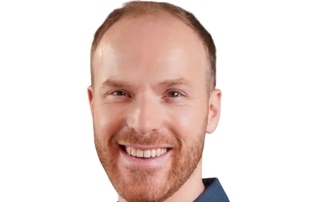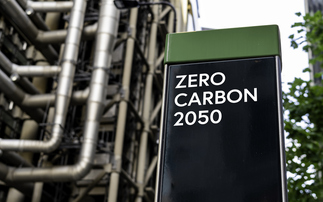BNP Paribas is supporting a UN Women project in Senegal that aims to help female rice growers scale their businesses
Land across the northern regions of Senegal, nearing the border Mauritania, is some of the driest on earth. It lies in the Sahel region of Africa, as the dunes of the Sahara make way for the savannas in the South. In recent years, as the rains have become scarcer and more unpredictable, the young men of these northern regions of Senegal have given up trying to farm, and instead headed to the capital Dakar to try their luck. Many fail to find work, and instead become migrants headed for Europe.
But there's life in the land yet. Enterprising women have established rice growing collectives working the land left by the departing men. The women in the north of Senegal now contribute to about a third of the country's annual rice consumption, and with the country working on a plan to become self-sufficient in rice production in the coming years, there's a real business opportunity there for the female farmers.
Yet climate change is taking its toll on agriculture in the region. In rural Senegal the amount of rainfall has dropped by 30 per cent in the last 40 years, and the women farmers are struggling to deliver the two harvests a year needed to make the businesses viable, explains Oulimata Sarr, acting regional director for West and Central Africa at UN Women. "They have to do an irrigated season, and then a rain-fed season," she explains to BusinessGreen. "And they were telling us that the yields for the rain-fed season are so much lower than the irrigated one. So we want them to be able to produce, rain or no rain."
The women farmers face other challenges too. Many are part of a 16,000-strong collective called REFAN, but they still struggle to access the land rights, buyers and finance needed to secure and scale their operations.
In September last year UN Women launched a new project called PAFAD, which aims to address some of these barriers, in order to empower Senegal's female farmers to produce more rice with a lower environmental impact. French banking giant BNP Paribas announced it was coming on board last month, and would provide $1.8m in grant funding for the next four years towards the $5m project.
That money will help tackle issues across four main pillars: land rights, climate-resilient farming skills, access to finance, and access to markets.
Trained lobbyists are being sent in to the local villages to negotiate with the chiefs about land access rights, which are traditionally passed to men in Senegalese culture, says Antoine Sire, director of company engagement at BNP Paribas. "The first part of the programme to help the women is to bring in people who are specialist lobbyists in dealing with village chiefs, who can educate them and explain to them what is at stake," he tells BusinessGreen. "They can mentor the women and help them to negotiate with the chiefs of villages to help get better rights of the land."
Teams from the UN are also working with the women to train them in the use of technology such as drones, and the latest climate-resilient farming techniques, to cut down the volume of pesticides, fertiliser and water used on the land.
Expanding the women's access to the domestic market is also crucial, says Sarr. Part of that is getting the marketing of the rice right - moving to a unified brand name and helping the women identify their unique selling point. It also means connecting the women with the kind of powerful bulk buyer that can give them a guaranteed income, agreed in advance, for their crop. "Rice used to be bought by intermediaries, who go to the rural areas, buy the rice at a cheap price and bring it to Dakar as a city and sell it for double," Sarr says. "And the women were telling us that they want to sell their rice themselves."
UN Women has introduced the farmers to the UN's Buy from Women platform, which connects growers directly to buyers and helps facilitate bulk orders. "It allows us to have a dashboard of the quantities we are expecting in June and December, and then the purchasers are able to buy," explains Sarr.
The app is also crucial for helping the women build a formal credit record that will be recognised by banks, she adds. "If they are selling the rice on the side of the road or informally, no one will know what they are worth." With a credit record, she says, "if they want small equipment like a dryer or a processor they will be able to access the finance because somebody has the track record of sale."
In fact, access to formal financial markets is one of the major focuses of the project, which is targeting farmers who are ready to scale their business beyond the level of microfinance. "For the longest time women have been confined to the ghetto of microfinance," Oulimata explains. "And these women farmers in rural areas are telling us 'we don't need microfinance, we need credit lines with guaranteed funds that allow us to grow to scale. Otherwise we are still confined to very small amounts that are not helping build our resilience'."
Sire, from BNP Paribas, agrees. "For the moment these women are completely under the radar in terms of finance," he says. "They do not have the financial structure that will allow them to borrow money, they do not have individual bank accounts - they are simply out of the system. So before we try to have them as clients, the first thing we have to do is go through a financial education process with them. We help them with what they need to be inside the system, because for the moment their economies are developing outside the economic system. But if they want to grow much further they have to be more structured."
Sarr's hope is that once the women have established a firm foothold in the formal financial market BNP Paribas' subsidiary BICIS, which operates in Senegal, will be able to create a "gender-sensitive" credit line for the women. As their operations grow, the benefits will trickle throughout the rural communities they live in, she points out. "These are rural women, and they believe in the collective effort, and they are rural entrepreneurs," she says. "With the money they make as a co-operative they are able to pay for school fees, to pay for health services, and try to grow up the value chain."
The project is expected to last for four years, with a clear exit strategy in place to ensure the women can go on to thrive without needing ongoing support from the UN.
It's this focus on long-term viability that convinced BNP Paribas to join the project, explains Sire. "We believe that in Africa it is important to be able to do things that are in the very long term. And sometimes we can see projects that rely on grants, but that in the long run can really drive to a much better economy and a much more inclusive life. We don't believe that the women will be clients of the bank in the next six months. But we believe that in the long run it will help to create a virtuous and sustainable economy, an economy that is sustainable ecologically and financially."










